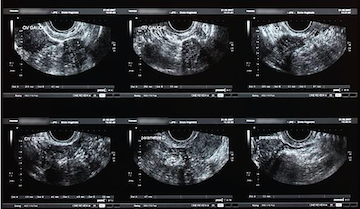Conseil directif et non-directif après un diagnostic d'anomalie fœtale
Non-directive counselling is encouraged in medical guidance; however, research has suggested this is very difficult in practice when counselling after a diagnosis of fetal anomaly. Emerging findings from a wider study about the acceptability of termination of pregnancy for non-lethal fetal anomaly showed that many healthcare professionals are both knowingly and unknowingly not adopting a non-directive counselling approach. However it is clear from their discussions that they do not believe this to be inappropriate. Extensive public and patient engagement work with parents who have received counselling after a diagnosis of fetal anomaly also add a different perspective to these emerging findings, confirming that a fully non-directive approach may not be occurring in practice. There is an assumption that the concept of directive counselling assumes a dichotomy of yes and no. In real terms non-directive counselling, is in fact a very difficult achievement. Not adopting a non-directive counselling approach is also not perceived to be directive by healthcare professionals, nor is it deemed inappropriate, in many instances, by parents. Thus, the gap between non-directive and directive counselling needs defining with more research aimed specifically at this issue. The medical guidelines also need to recognise the spectrum as opposed to just assuming healthcare professionals are either directive, or non-directive.
Biography
Dr Lisa Crowe is a Research Associate working in the Institute of Health and Society, Newcastle university. Lisa's background is medical sociology, and she now works in applied public health research. As an early career researcher, she has worked across a number of different projects. These have included: obesity in pregnancy, loss from a multiple pregnancy, alcohol interventions in a custody suite setting, evaluating a mental health service, and pediatric heart transplants. These have provided valuable skills in Lisa's continued development into a firmly established researcher. Lisa is also preparing for a postdoctoral fellowship application.

 PDF version
PDF version
